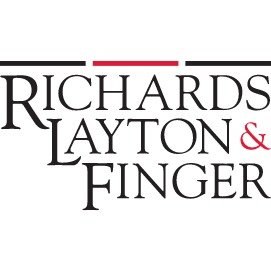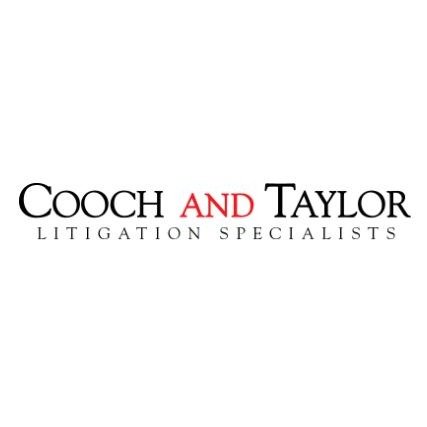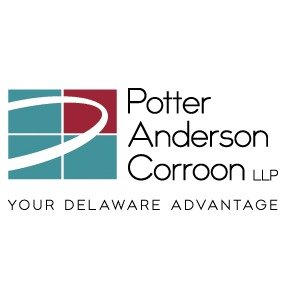Best Corporate Governance Lawyers in Delaware
Share your needs with us, get contacted by law firms.
Free. Takes 2 min.
Or refine your search by selecting a city:
List of the best lawyers in Delaware, United States
About Corporate Governance Law in Delaware, United States
Corporate governance refers to the system of rules, practices, and processes by which corporations are directed and controlled. In the United States, Delaware is considered the leading jurisdiction for corporate law due to its well-developed legal framework, respected Court of Chancery, and business-friendly statutes. Many U.S. and international companies are incorporated in Delaware because its laws provide predictability, flexibility, and protection for both management and shareholders. Delaware’s corporate governance standards influence how companies are managed, how decisions are made, and how stakeholders are treated. Understanding corporate governance in Delaware is essential for anyone involved in managing, investing in, or advising a corporation organized under Delaware law.
Why You May Need a Lawyer
While Delaware provides comprehensive guidance for corporate governance, navigating these rules can be complex. There are multiple scenarios where legal help may be necessary:
- Starting a new Delaware corporation and needing to structure the board, bylaws, or management process
- Handling disputes between shareholders and management or within the board of directors
- Drafting, reviewing, or amending governance documents, such as bylaws or shareholder agreements
- Understanding fiduciary duties of officers and directors
- Navigating mergers, acquisitions, or dissolutions of Delaware corporations
- Addressing allegations of breaches of duty or conflicts of interest
- Responding to shareholder demands, including demands for records or derivative litigation
- Complying with Delaware law while pursuing business objectives from another state or country
Local Laws Overview
Delaware’s business statutes are found primarily in the Delaware General Corporation Law (DGCL). Some key aspects include:
- Board of Directors: Delaware law gives the board of directors broad authority to manage the corporation unless otherwise limited by the certificate of incorporation or bylaws.
- Fiduciary Duties: Directors and officers owe duties of care and loyalty to the corporation and its shareholders. Breaching these duties can lead to legal liability.
- Shareholder Rights: Shareholders have specific rights to elect directors, inspect certain corporate records, and vote on major corporate changes.
- Business Judgment Rule: Courts defer to the board’s decisions if made in good faith, on an informed basis, and with the belief that the action was in the best interest of the corporation.
- Derivative Litigation: Shareholders can bring lawsuits on behalf of the corporation under certain circumstances, usually after making a demand on the board.
- Bylaws and Charter: These documents govern many aspects of the corporation’s operation and can often be tailored to meet the needs of the business, subject to legal requirements.
- Merger and Acquisition Procedures: Delaware law provides clear processes for approving and completing mergers, sales of assets, and other major transactions.
- Annual Meetings and Voting: Corporations must hold annual meetings and keep proper records, with detailed rules on notice and voting procedures.
Frequently Asked Questions
What is the Delaware General Corporation Law?
The Delaware General Corporation Law, or DGCL, is the primary body of law governing the formation, operation, and governance of companies incorporated in Delaware. It is widely considered the most advanced and flexible corporate statute in the United States.
Why do so many companies incorporate in Delaware?
Delaware offers clear and flexible laws, a highly respected court system specializing in business matters, predictable legal outcomes, and privacy for business owners. This makes Delaware attractive for both startups and large, established corporations.
What are the main duties of directors and officers in Delaware corporations?
Directors and officers must act with care and loyalty, making decisions in good faith and in the best interests of the corporation. They must avoid self-dealing and conflicts of interest and act on an informed basis.
Can one person be the sole director and officer of a Delaware corporation?
Yes, under Delaware law, a single individual can serve as the sole director, officer, and shareholder of a corporation.
What is the business judgment rule?
The business judgment rule is a legal principle in Delaware that protects directors from liability for decisions made in good faith, with due care, and within their authority, even if the outcomes are unfavorable.
How are disputes between shareholders and directors resolved?
Many disputes are resolved through negotiation, mediation, or arbitration. However, Delaware’s Court of Chancery has jurisdiction over many corporate disputes and is recognized for its expertise in resolving these matters efficiently.
What rights do shareholders have in Delaware corporations?
Shareholders have the right to vote on key issues, inspect certain company records, propose changes, bring lawsuits on behalf of the corporation under certain conditions, and receive dividends if declared.
What happens if a director or officer breaches their fiduciary duties?
A breach of fiduciary duty can expose directors or officers to legal liability, including damages and removal from their position. Shareholders or the corporation itself can bring claims for breaches.
Are bylaws required and can they be customized?
Bylaws are required and serve as the internal rulebook for a corporation. They can be crafted to suit the needs of the specific corporation as long as they are consistent with the DGCL and the certificate of incorporation.
How do I amend a corporation’s bylaws or certificate of incorporation in Delaware?
Amendments generally require approval by the board of directors and, in most cases, a shareholder vote, following the procedures set out in the DGCL and the corporation’s governing documents.
Additional Resources
For additional help or information, the following resources may be valuable:
- Delaware Division of Corporations: Offers official guidance for corporate filings and compliance.
- Delaware State Bar Association: Provides access to experienced corporate attorneys and publishes educational materials.
- Delaware Court of Chancery: The court responsible for most corporate governance litigation, with publicly available resources and case information.
- Law Libraries and Online Portals: Institutions such as Widener University Delaware Law School offer access to legal texts and research tools for those wishing to learn more.
- Professional Advisors: Certified public accountants and business consultants in Delaware often have experience with corporate governance issues.
Next Steps
If you believe you need legal assistance with a corporate governance issue in Delaware, take these recommended steps:
- Identify your specific concerns and gather all relevant documents, such as your bylaws, certificate of incorporation, and meeting minutes.
- Research and contact attorneys who specialize in Delaware corporate law, preferably with experience in governance matters.
- Schedule a consultation to discuss your needs, risks, and possible solutions. Provide the attorney with as much information as possible to assist with an accurate assessment.
- Consider utilizing resources such as the Delaware Division of Corporations or local legal aid services if cost is a concern.
- Stay informed about any changes to the law that may impact your corporation by subscribing to relevant newsletters or legal updates from reputable sources.
Lawzana helps you find the best lawyers and law firms in Delaware through a curated and pre-screened list of qualified legal professionals. Our platform offers rankings and detailed profiles of attorneys and law firms, allowing you to compare based on practice areas, including Corporate Governance, experience, and client feedback.
Each profile includes a description of the firm's areas of practice, client reviews, team members and partners, year of establishment, spoken languages, office locations, contact information, social media presence, and any published articles or resources. Most firms on our platform speak English and are experienced in both local and international legal matters.
Get a quote from top-rated law firms in Delaware, United States — quickly, securely, and without unnecessary hassle.
Disclaimer:
The information provided on this page is for general informational purposes only and does not constitute legal advice. While we strive to ensure the accuracy and relevance of the content, legal information may change over time, and interpretations of the law can vary. You should always consult with a qualified legal professional for advice specific to your situation.
We disclaim all liability for actions taken or not taken based on the content of this page. If you believe any information is incorrect or outdated, please contact us, and we will review and update it where appropriate.
Browse corporate governance law firms by city in Delaware
Refine your search by selecting a city.












